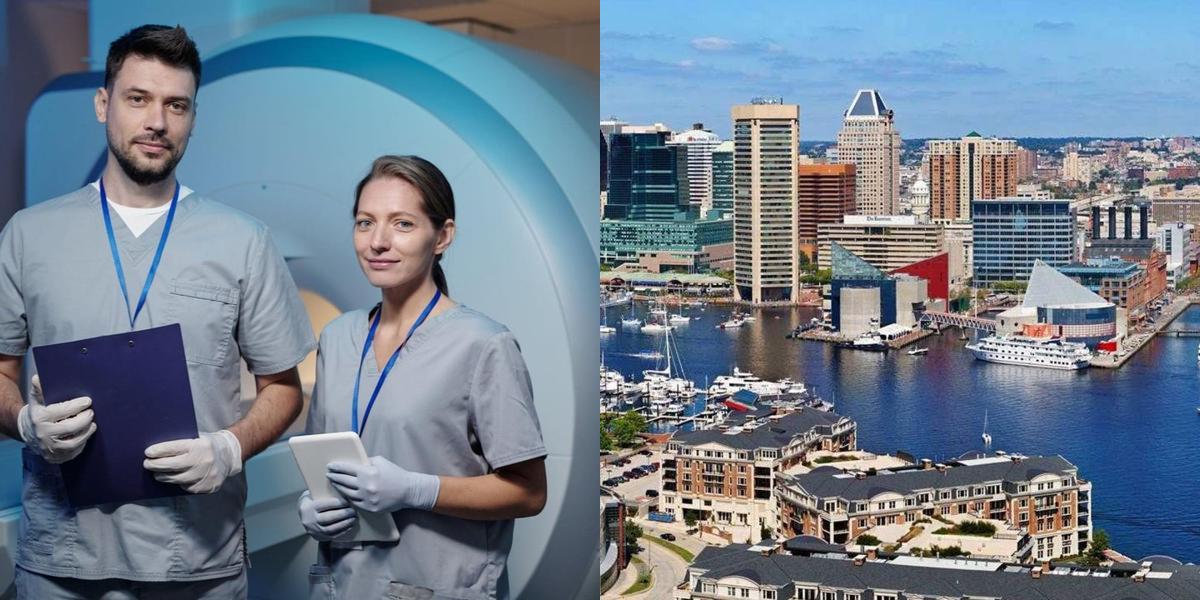How to Become a Radiology Technician in Maryland

What is a Radiology Technician?
Radiology technicians, also known as radiographers, are healthcare professionals who use specialized imaging equipment to take diagnostic images of the human body. Their primary responsibilities include:
- Positioning patients and operating x-ray, CT, MRI, and other imaging machines
- Ensuring the quality and accuracy of the images
- Maintaining and troubleshooting imaging equipment
- Providing excellent patient care and customer service
Article continues after recommendations
Recommended for you
Where Does a Radiology Technician Work?
Radiology technicians typically work in hospitals, clinics, diagnostic imaging centers, and outpatient facilities. They may also find employment in specialized settings such as sports medicine clinics, veterinary offices, and research laboratories.
How to Become a Radiology Technician in Maryland?
To become a Radiology Technician in Maryland, one must first complete an accredited radiologic technology program, which typically takes 2-3 years. Next, obtain certification by passing the American Registry of Radiologic Technologists (ARRT) exam. Once certified, individuals can search for job opportunities in hospitals, clinics, or private practices to start earning a competitive salary.
What are the Requirements to Become a Radiology Technician in Maryland?
To become a radiology technician in Maryland, you must meet the following requirements:
- Complete an accredited radiography program, typically a 2-year associate's degree
- Pass the American Registry of Radiologic Technologists (ARRT) certification exam
- Obtain a license from the Maryland Board of Physicians
Exploring a Career in Radiology Technician Outside Maryland
If you're dreaming of being a Radiology Technician but find yourself in a different state, fear not — your dreams are still achievable. You might find your path to becoming a Radiology Technician in locations such as Florida, Georgia, Missouri, Virginia, or West Virginia. And if these don't match your current location, Dreambound simplifies the journey by helping you easily search and compare Radiology Technician classes using just your search by zip code. With commitment and the right resources like Dreambound, entering healthcare is possible from anywhere.
How Do I Get My Radiology Technician Certification?
To get your radiology technician certification, you must:
- Graduate from an accredited radiography program
- Apply to take the ARRT certification exam
- Pass the ARRT exam with a minimum score of 75%
- Maintain your certification through continuing education and professional development
Get courses selected just for you
Try our powerful search engine
How Do I Get a Job as a Radiology Technician?
To get a job as a radiology technician in Maryland, you should:
- Network with healthcare professionals and attend industry events
- Search for job openings on job boards, hospital websites, and professional associations
- Prepare a strong resume and cover letter highlighting your education, certification, and relevant experience
- Ace the interview by demonstrating your technical skills, customer service abilities, and passion for the field
Career Paths and Opportunities after Becoming a Radiology Technician
After becoming a radiology technician, you can pursue a variety of career paths and opportunities, including:
- Specializing in a particular imaging modality (e.g., CT, MRI, mammography)
- Advancing to a supervisory or management role
- Becoming an educator or instructor in a radiography program
- Transitioning to a different healthcare field, such as radiation therapy or sonography
Final Thoughts
Becoming a radiology technician in Maryland can be a rewarding and fulfilling career choice. With the right education, certification, and job search strategies, you can embark on a successful and dynamic career in the exciting field of medical imaging.
If this article isn't quite hitting the mark for you, why not give these other articles a try:

Athena is Co-founder and CEO of Dreambound.




